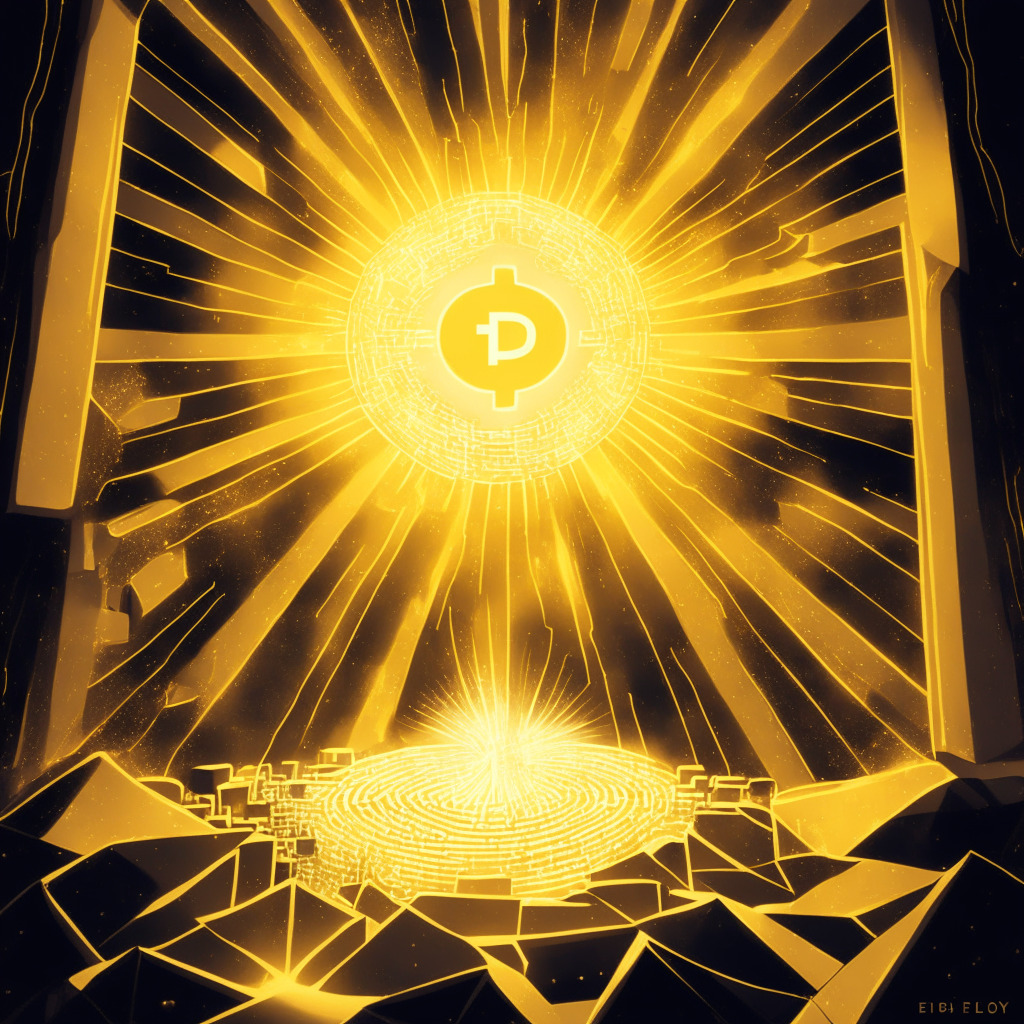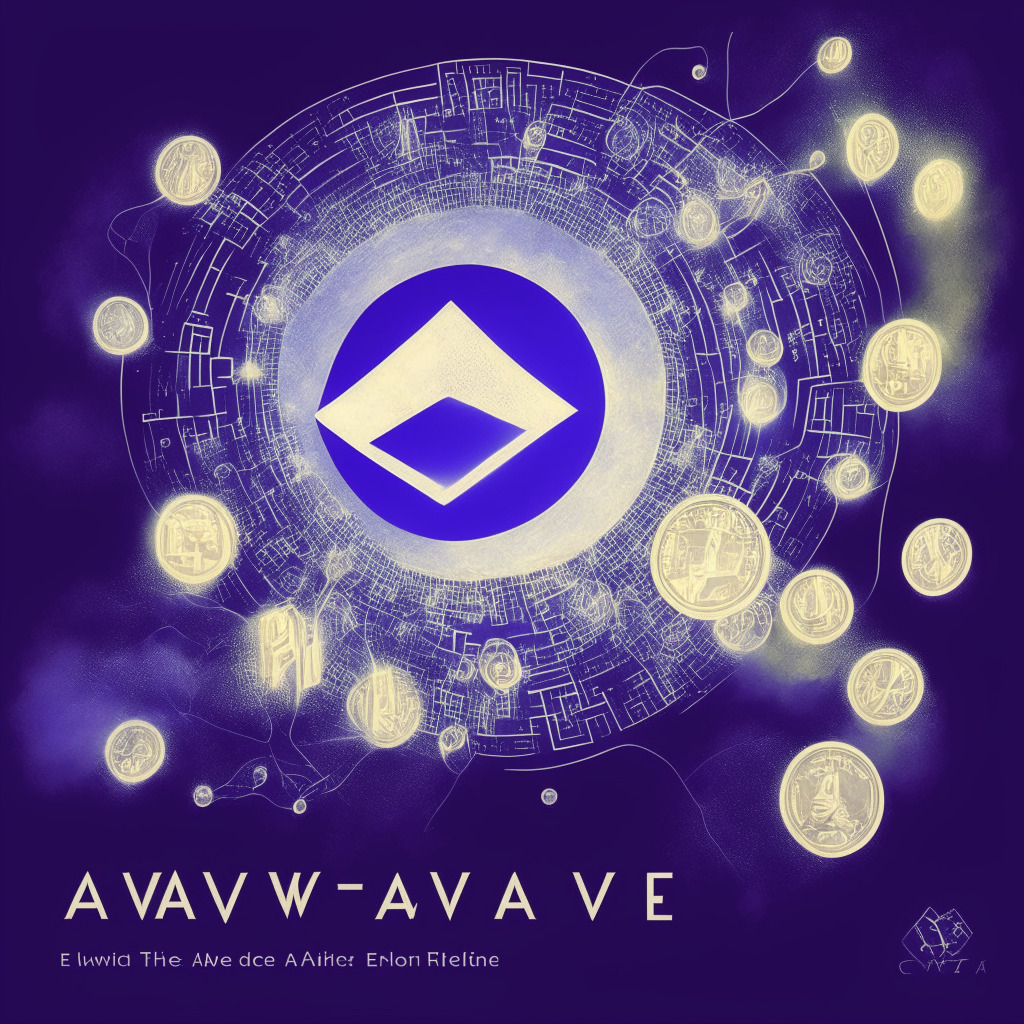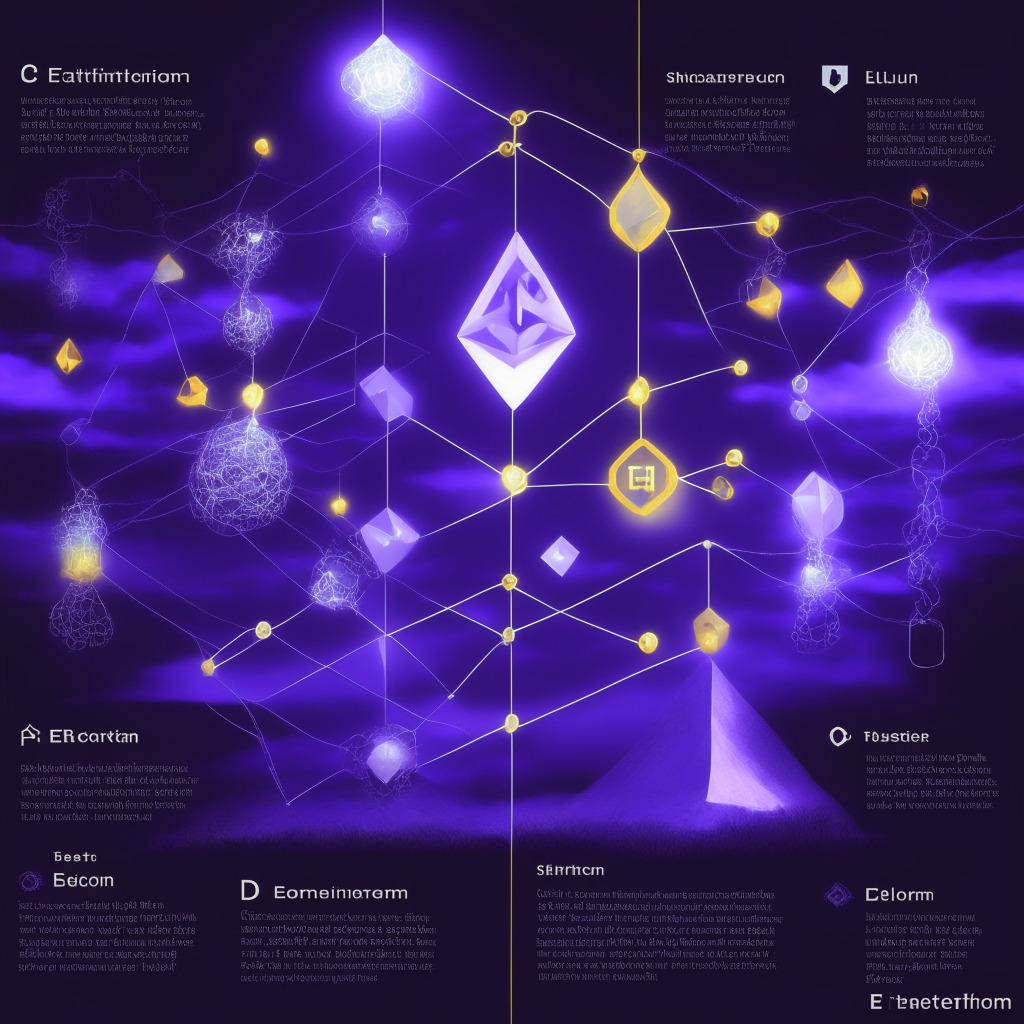Visa has been utilizing Ethereum’s Goerli testnet and a smart contract called Paymaster to explore transaction-free payments in digital currencies. This method enables users to pay gas fees with any token, eliminating the need for Ether and potentially enhancing payment experiences in the crypto space.
Search Results for: ETH Goerli
A Fresh Hope: The Resurgence of Holesky Test Network and Ethereum’s Future Prospects
The resounding success of Ethereum’s second attempt to establish the Holesky test network addresses scalability concerns. Holesky accommodates 1.4 million validators, twice as many as Ethereum. It is predicted to contribute significantly in introducing the Dencun hardfork and further outpace Ethereum’s competitors.
Ethereum’s Holesky Testnet Launch Misfires: A Hiccup or Long-Term Concern?
Ethereum’s anticipated test network, Holesky, faced a launch setback due to a misconfiguration, resulting in a two-week delay. Despite being intended to address Ethereum’s scaling issues and allow for increased validators, the event highlighted vulnerabilities. However, the existing Goerli testnet remains functional, supporting continued application testing. This incident does not affect Ethereum’s subsequent hard fork, Dencun.
Ethereum’s Prospects Amid Testnet Troubles & The Rise of Non-Traditional Crypto Assets
“Ethereum’s recent trading volume exceeded $2.6 billion, boosting its price over the $1,600 benchmark. Despite a hiccup in the Holesky testnet launch due to data entry errors, Ethereum’s mainnet remains unaffected emphasizing the need for testnets in improving validation and staking processes.”
Ethereum’s Holseky: Innovation Towards Scalability or a Step Towards Centralization?
The Ethereum blockchain is introducing Holesky, the largest test network, set to resolve scalability issues before projects go live. Despite its high potential and efforts in scaling and energy use, concerns remain about Ethereum’s centralized nature and financial barriers for individual validators.
Ethereum’s Holesky vs BitGo’s Bitcoin-Only Trust: Innovations Shaping Blockchain’s Future
Ethereum’s new testnet ‘Holešky’ aims to support staking, infrastructure and protocol development. Its launch, with 1.6 billion ETH available for validators, signals a significant evolution in the blockchain landscape. This network is designed to ease the testing needs of broader Ethereum’s technological advancements. Despite its potential, the success of Holešky isn’t guaranteed due to unpredictable blockchain challenges.
Ethereum’s New Testnet Holesky: A Gargantuan Leap in Blockchain Scalability and Sustainability
“Ethereum developers initiate new test network, Holesky, doubling the capacity of the main network. Commemorating Ethereum’s transition to a ‘proof-of-stake’ blockchain, Holesky offers an environment for developers to experiment and address scalability issues, aiming to replace the existing Goerli testnet by 2024.”
Ethereum’s New Holesky Testnet: A Step Towards Optimized Network Scalability and Enhanced Testing
Ethereum is set to unveil a new testnet, Holesky, which promises larger capacity than its existing networks, Sepolia and Goerli. The new testnet aims to address potential scaling issues and accommodate more extensive testing for Ethereum’s growing developer community. Named after a Prague train station, Holesky’s significant size would provide a realistic environment for infrastructure and core protocol upgrade testing, targeting to enhance Ethereum’s resilience against unexpected obstacles.
Visa Maneuvers into Ethereum’s Ecosystem: Streamlining Transactions or Threatening Decentralization?
Visa has tested a method for paying on-chain gas expenses with traditional currency through card transactions, aimed at simplifying blockchain technology. Their solution uses Ethereum’s ERC-4337 standard, allowing smart contracts to cover gas fees, potentially making blockchain interactions more accessible for everyday users. However, concerns are raised about maintaining blockchain’s decentralized ethos.
Aave’s GHO Stablecoin: Innovative Benefits vs Decentralization Risks on Ethereum Mainnet Launch
Aave’s innovative stablecoin, gho (GHO), nears Ethereum mainnet launch with proposals for V3 Ethereum Facilitator and FlashMinter Facilitator. Backed by a basket of cryptocurrencies, gho aims for decentralization, passive income opportunities, and benefits for Aave’s decentralized autonomous organization (DAO) while confronting potential risks.
Ethereum vs Visa: Battle of Transaction Giants and the Future of Finance
Ethereum’s $3.01 trillion in transaction processing approaches Visa’s $3.08 trillion, showcasing mainstream adoption of the versatile blockchain technology. With solutions like DeFi, staking, and lending, Ethereum challenges traditional payment giants and revolutionizes the global finance market.
Visa Tackles Ethereum Account Abstraction & ERC-4337: Revolutionizing Crypto Payments
Visa explores Ethereum Account Abstraction and ERC-4337 for secure automatic recurring payments and potential gas fee redesigns. This aims to improve user convenience and enable seamless digital transactions in crypto onboarding experiences. Ethereum co-founder, Vitalik Buterin, supports these innovations for self-custodial wallets.
Ethereum’s Beacon Chain Finality Issues: Lessons Learned & Network Resilience
Ethereum core developers quickly addressed Beacon Chain finality issues by rolling out patches for Prysm Labs and Teku clients. High load on Consensus Layer clients caused the problem which affected transaction finalization. Upgrades released by Teku and Prysm help prevent excessive resource usage and mitigate future issues. Continuous improvement and diverse ecosystem of clients are crucial for blockchain technology’s resilience.
Ethereum’s Unexplained Interruption: How Robustness and Client Diversity Shape the Future
Ethereum’s Beacon Chain faced an unexplained 30-minute interruption recently, highlighting the need for increased client diversity and resilience in the blockchain. Despite concerns, the event also demonstrated the adaptability and robustness of the Ethereum network. Future research and interoperability can help prevent similar interruptions.
Unlock DAO Revolutionizes Cross-Chain Governance: Pros, Cons, and Main Conflict
Unlock DAO announces plans to launch a cross-chain governance solution on ETH Goerli and Polygon Mumbai testnets, intending to automate decision-making by the DAO and streamline governance across numerous networks. The open-source solution is expected to be deployed on the mainnet by the end of June.
Regulatory Scrutiny vs Technological Advancements: Navigating the Complex Crypto Landscape
Despite regulatory challenges and hacking threats, the crypto sphere continues to innovate, with enhanced privacy, user experience, and transaction efficiency. As Ethereum plans a major transformation and Ripple maintains its legal standing, the tokenized assets market could reach $16 billion by 2030. However, effective regulation remains vital to safeguard all stakeholders.
Unleashing the Future of Cryptocurrency with Visa’s Ingenious Off-Chain Gas Fee Solution
Visa has initiated tests to enable cryptocurrency users to pay on-chain gas fees directly through Visa card payments. This innovative project aims to circumvent the traditional requirement for users to maintain their Ethereum balances to cover fluctuating gas fees. The process involves a “paymaster” smart contract for off-chain gas fee settlements, which could significantly simplify cryptocurrency transactions and enhance user experiences.
Worldcoin’s Audacious Move: Biometric Drawbacks Meet Visa’s On-chain Innovation
The Worldcoin project, offering Worldcoin tokens in return for scanning users’ irises to create a biometric ID system, faces skepticism and regulatory challenges globally. Despite announcing overloading of 2 Million customers before launch, the actual usage remains unclear.
The Chainlink Boom and the Role of CCIP: Whales, Oracles, and Cross-Chain Applications
Following Chainlink’s Cross-Chain Interoperability Protocol (CCIP) release, LINK experienced a surge due to increased interest from large investors. CCIP, a key initiative aimed at improving cross-chain services and applications, is now live on multiple blockchains, positioning Chainlink as a prominent player in the growing blockchain technology industry.
Unraveling Chainlink’s Cross-Chain Interoperability Protocol – Future of Banking or Risky Business?
“Chainlink has unveiled its Cross-Chain Interoperability Protocol (CCIP) to manage cross-chain applications creation and services, now available for early users across several blockchain platforms, including Ethereum and Polygon. This protocol fulfills a substantial role in Chainlink’s partnership with international money transfer network, SWIFT.”
Gho’s Spectral Leap: The High Stakes Behind Aave DAO’s Decision on Deploying the New Stablecoin
In an impactful development, Aave DAO may introduce the gho (GHO) stablecoin to the Ethereum blockchain. If approved, GHO would disrupt decentralized finance by allowing users to mint GHO against their token holdings on Aave’s platform, potentially boosting Aave DAO’s revenue.
SAP Tests USDC Stablecoin Payments: Examining Blockchain’s Impact on Cross-Border Transactions
SAP is testing cross-border stablecoin payments using USDC on Ethereum’s Goerli testnet, aiming to improve international financial transactions. Their blockchain-based solution may offer a more efficient, transparent and cost-effective alternative to traditional cross-border payments, eliminating intermediaries and reducing fees.
Teleporting Assets: Storage Proofs Revolutionize Cross-Chain Transfers and Security
Storage proofs, a cryptographic method aiming to revolutionize cross-chain asset transfers, may provide a more secure alternative to vulnerable bridges in the growing blockchain ecosystem. Starknet plans to be the first network to natively integrate storage proofs, potentially eliminating intermediary third-party “oracles,” offering enhanced security and user experience for asset transfers.





















